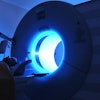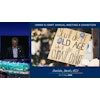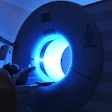Dear AuntMinnie Member,
Safety issues with gadolinium-based contrast agents (GBCAs) used for MRI exams have been studied for years. But gadolinium can apparently also negatively affect the environment.
The most highly viewed story on AuntMinnie.com this week reported on a pair of studies that assessed the prevalence of medical gadolinium in the Earth's water systems. A group from France mapped gadolinium in the Earth's oceans, while a team from Hungary tracked the deposition of gadolinium in urban water systems. Read our coverage to find out their results.
In other news in our MRI Community, breast MRI detected axillary lymphadenopathy in a substantial number of patients who had recently received the COVID-19 vaccine booster. But further follow-up may not be needed in these patients, according to the researchers.
PET/CT in critically ill COVID patients
Whole-body F-18 FDG-PET/CT shows potential as a diagnostic tool in critically ill COVID-19 patients, according to another popular article this week. In a case series, researchers from the Netherlands showed how the modality could discriminate inflammation from secondary infections.
Stop by our Molecular Imaging Community for this and other stories, including a column by Davin Korstjens of AuntMinnie.com's sister company IMV Medical Information Division on recent developments in the U.S. PET market.
New radiation shield
A new radiation shielding system could enable interventional radiologists to ditch the lead apron during procedures. In testing, researchers from Arizona concluded that the shield offered excellent radiation exposure protection for physician operators during fluoroscopy, including zero exposure in two-thirds of cases.
In other digital x-ray developments, chest x-rays of COVID-19 patients taken at the time of hospital admission can help predict which patients face a higher risk of death, according to a recent study.
Stay up to date on radiology's oldest modality by visiting our Digital X-Ray Community.




















